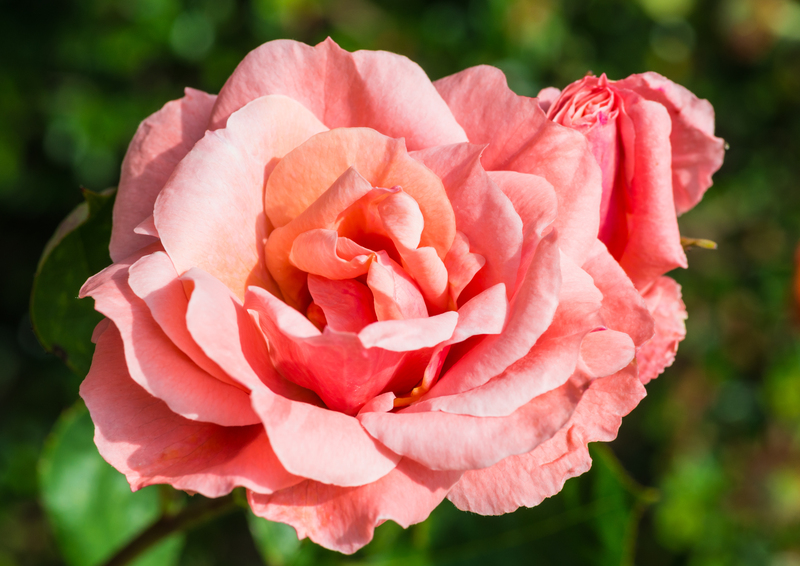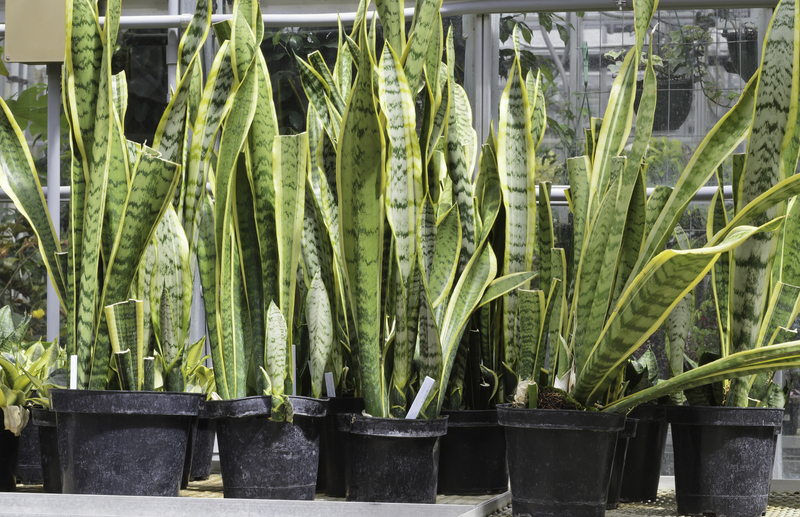Uncover 3 Surprisingly Effective Tips for Weed Control
Posted on 12/06/2025
Uncover 3 Surprisingly Effective Tips for Weed Control
Weed control is a never-ending challenge for gardeners, homeowners, and landscapers. Whether you're battling crabgrass in your sidewalk, dandelions in your lawn, or chickweed in your flower beds, unwanted plants can quickly undermine the beauty and health of your outdoor spaces. If you feel overwhelmed by weeds, there's good news! Innovative weed management techniques can help you protect your gardening efforts with less hassle. In this comprehensive guide, we'll uncover three surprisingly effective tips for weed control to help you maintain a pristine landscape without relying on harsh chemicals or backbreaking labor.
Why Effective Weed Management Matters
Weeds aren't just unsightly--they compete with your plants for essential resources such as water, nutrients, and sunlight. Persistent weed infestations can reduce crop yields, increase the need for maintenance, and even introduce pests and diseases to your garden. By implementing smart weed suppression strategies, you'll nurture healthier plants, reduce water use, and save time in the long run.
Before we reveal our top three methods for controlling unwanted plants, it's important to understand why traditional approaches sometimes fall short.
- Chemical herbicides can damage desirable plants and harm the environment.
- Hand-pulling is labor-intensive and doesn't always address root systems.
- Untimely cultivation may bring buried weed seeds to the surface, causing more problems.
So, what are the alternatives? Let's explore three proven and surprisingly effective weed control tips that every gardener should know.

1. Harness the Power of Mulching: Nature's Weed Barrier
How Mulch Blocks Weeds
One of the oldest and most reliable weed prevention techniques is mulching. Mulch forms a physical barrier over the soil, depriving weed seeds of the light they need to germinate. It also helps retain soil moisture and regulate temperature, fostering vigorous growth of your desired plants.
Types of Mulch for Effective Weed Suppression
- Organic mulches: Wood chips, shredded bark, straw, grass clippings, compost, and leaves.
- Inorganic mulches: Landscape fabric, black plastic, pebbles, and gravel.
Organic mulches such as shredded leaves or bark are especially popular in gardens. They not only control weeds but also break down to enrich the soil. For larger areas or pathways, consider using landscape fabric or even cardboard beneath a layer of mulch for an unbeatable weed barrier.
Expert Mulching Tips for Weed Control
- Apply mulch in a layer that's at least 2-3 inches thick; thinner layers won't effectively suppress weeds.
- Keep mulch away from plant stems to prevent rot and discourage pests.
- Replenish organic mulch every year as it decomposes.
- For extra weed suppression, lay newspaper or cardboard beneath the mulch to further block light and smother emerging weeds.
Mulching is not just for flower beds--use it around trees, shrubs, and even in vegetable gardens. This sustainable method dramatically reduces both weed seed germination and the need for frequent weeding. If you haven't already made mulching a routine part of your garden maintenance, now's the time to start!
2. Embrace Densely-Planted Gardens: Outcompete the Weeds
The Principle of Living Mulch
Nature abhors a vacuum; empty plots of earth are an open invitation for weed seeds to take hold. One particularly effective and often undervalued weed control method is cultivating dense plantings or using what's known as "living mulch." The idea is simple: by filling open spaces with fast-growing ground covers or closely spaced plants, you can shade the soil and choke out potential weeds before they even get started.
Best Plants for Living Mulch and Ground Covers
- Clover: Low-growing, nitrogen-fixing, and compatible with many lawns.
- Thyme or creeping phlox: Attractive, drought-tolerant, and forms a weed-suppressing mat.
- Oregano or chamomile: Perfect for herb gardens and edible landscapes.
- Low-growing grasses: Suited to pathways or between stepping stones.
Use lush perennials, annuals, or ground covers as living mulch around trees, shrubs, and in your flower borders. In vegetable gardens, interplanting fast and slow growers like radishes with carrots or lettuce can fill the gaps and keep weeds at bay.
Spacing and Planting Tips for Optimal Weed Suppression
- Plant garden beds closely, leaving just enough space for mature growth.
- Fill bare spots immediately with cover crops or low-growing plants.
- Regularly transplant seedlings to areas where weeds threaten to take hold.
The takeaway? A full garden is a healthy and weed-resistant garden. By keeping your beds densely planted, you'll not only reduce weeds but also improve biodiversity and create stunning visual interest throughout the growing season.
3. Practice Smart Watering Techniques to Target Only What You Want
Why Overhead Watering Encourages Weeds
Many gardeners are surprised to learn that how you water has a big impact on weed growth. Traditional sprinklers and overhead watering methods deliver moisture evenly across your beds--including to weed seeds lurking at the surface. This inadvertently encourages weed germination and growth.
Switch to Targeted Irrigation for Weed Control
- Drip irrigation systems: Deliver water directly to the root zones of your plants without soaking surrounding soil.
- Soaker hoses: Provide slow, deep watering that targets only the base of desirable plants.
- Spot watering: Use a watering can to hydrate only those plants you want to thrive.
With precision watering techniques, you deprive emerging weeds of the consistent moisture they need to flourish. Established plants benefit from efficient root-level watering, while invasive weeds struggle to get started.
Bonus Tips for Water-Smart Weed Management
- Water early in the day to minimize evaporation and reduce humidity that favors fungal diseases.
- Layer mulch over drip lines to maximize water retention and further limit weed growth.
- Adjust your irrigation schedule according to plant needs and rainfall, rather than on a fixed timetable.
Over time, smart watering will reinforce all your other weed management efforts, helping maintain vibrant, weed-free beds with less effort.
Additional Weed Control Strategies Worth Knowing
Hand Weed Regularly--But Make It Easy
No weed control system is 100% foolproof. Weeds will inevitably pop up, especially after rain or soil disturbance. Make weeding less of a chore by removing invaders when they're small and before they set seed.
- Weed after rain or irrigation for easier root removal.
- Use an ergonomic weeding tool to protect your hands and back.
- Carry a bucket or bag and weed in short bursts to avoid fatigue.
Solarization for Large Infestations
For heavily infested areas, consider soil solarization. In summer, cover moist soil with clear plastic sheeting for 4-6 weeks. Solar heat destroys weed seeds and pathogens for a fresh start.
Stay Vigilant in Weed Prevention
- Inspect newly purchased plants for weed seeds or invasive roots.
- Edge garden beds with a physical barrier to prevent weed creep.
- Promptly remove flower heads from weeds to halt seed spread.

Frequently Asked Questions About Weed Control
Q: Is it possible to control weeds without chemicals?
Absolutely! With techniques such as mulching, dense planting, and targeted watering, you can manage most weed problems organically and sustainably.
Q: When is the best time to tackle weeds?
The earlier the better. Address weeds in early spring or as soon as you notice them to prevent seeding and spread.
Q: Which method of weed control works fastest?
Mulching provides almost immediate results by blocking light and moisture from weed seeds. Pair it with ongoing maintenance for lasting results.
Conclusion: Take Control of Weeds for a Lush, Healthy Garden
Removing weeds doesn't have to be a back-breaking or environmentally harmful task. With these three surprisingly effective tips for weed control--mulching, dense planting, and smart watering--you can dramatically reduce weed pressure and create a thriving, beautiful landscape. Optimize your garden care by integrating these simple yet powerful strategies and say goodbye to unwanted plants for good!
Weed management is an ongoing process, but by working smarter, not harder, you'll find more time to enjoy your outdoor oasis. Try these innovative weed control methods today and watch your garden--and your free time--flourish.
Ready to transform your garden? Start using these effective weed suppression techniques and reclaim your landscape from invasive plants!
Latest Posts
Exploring the World of Herb Cultivation at Home
Master the Basics with These 9 Gardening Tips for Beginners
Garden Equilibrium: Achieve Peace with Zen Garden Elements



